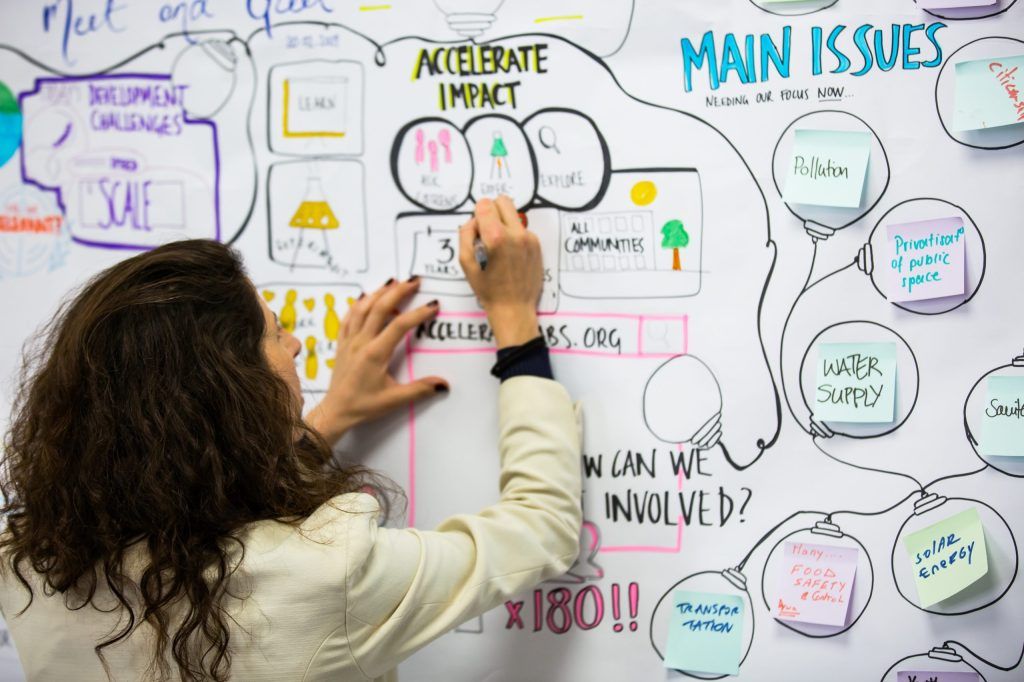The green economy potential to engage marginalised youth
In recent years, the transition from education to work has become more prolonged and unpredictable. In fact, due to different and successive crises, many young people find themselves neither in employment nor in education and training (NEET). And youth with little or no education is highly marginalised, and increasingly far from jobs. At the same time, there is still an unexploited potential in green economy: environment protection can provide the base for new work opportunities. Combining these two fields – the social and the environmental – is the purpose of the RESMYLE project, which aims at the socio-professional integration of young people into the job market.
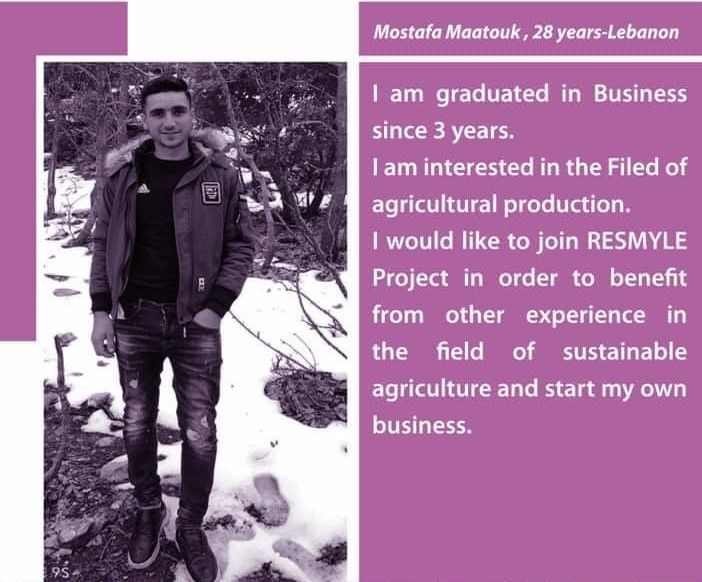 According to Eurostat, 27.8% of young Italians are neither in employment nor in education and training (NEET); 23.3% of young people (between 20-34) in Lebanon are unemployed. Across the Mediterranean region, young people are experiencing increasing difficulties in the access to employment due to the successive crises in the financial and economic sectors, let alone the recent COVID-19 emergency. There are disparities between the requests of the job market and the graduates’ qualifications; moreover, young people with little or no education are highly marginalized and increasingly distanced from employment.
According to Eurostat, 27.8% of young Italians are neither in employment nor in education and training (NEET); 23.3% of young people (between 20-34) in Lebanon are unemployed. Across the Mediterranean region, young people are experiencing increasing difficulties in the access to employment due to the successive crises in the financial and economic sectors, let alone the recent COVID-19 emergency. There are disparities between the requests of the job market and the graduates’ qualifications; moreover, young people with little or no education are highly marginalized and increasingly distanced from employment.
At the same time, the growing concerns for environmental protection in the Mediterranean might provide new opportunities, given the lack of skills in several areas such as waste sorting, eco-mobility, water management, renewable energies, risk prevention, etc.
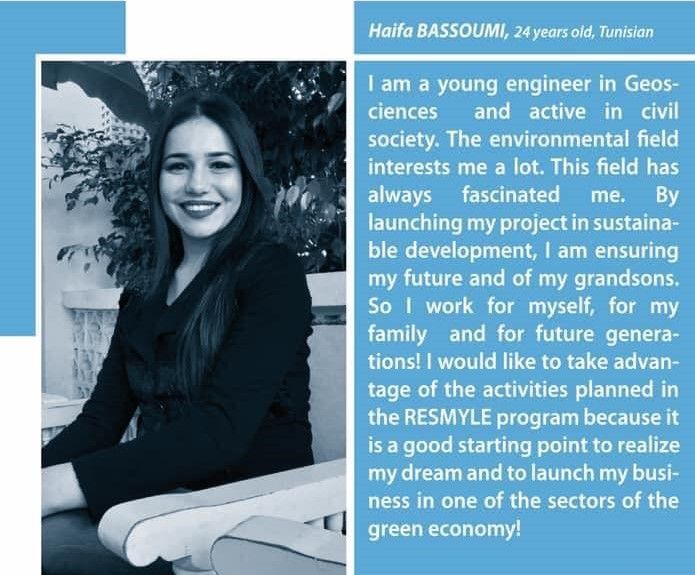
The RESMYLE project – ENI CBC MED programme – responds to this double challenge, rethinking the employment and social integration of the young people in the Mediterranean through sustainable development. The initiative builds up on the experience of another CBC project from the 2007-2013 programming cycle, “ILE – Initiatives Locales pour l’Environnement en Méditerranée”. The project partners acknowledged the unexploited potential of green economy as an important element for jobs creation and local development and decided to draw a new initiative at the crossroad of the social and environmental fields. Yet, the project was not conceived to promote the informal economy but rather to focus on and reinforce local strategies and local entrepreneurships.
In RESMYLE nine partners from five countries are working around three complementary areas of intervention: environmental education, hands-on trainings, and support to eco-entrepreneurship.
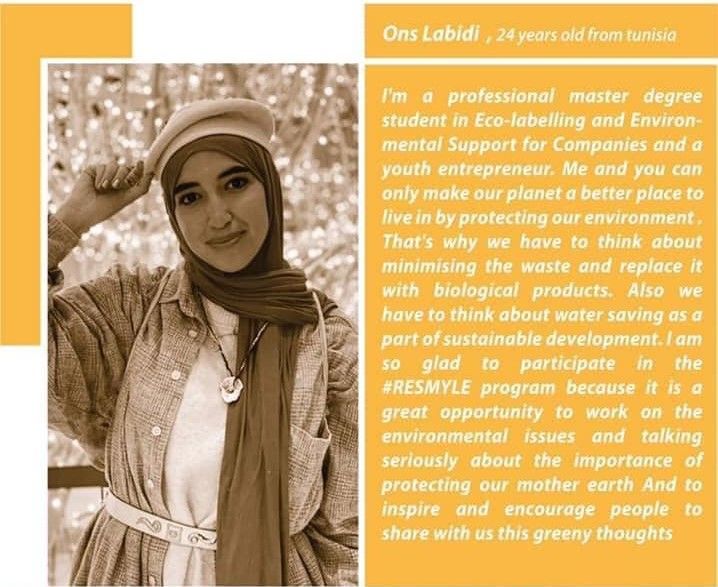 In the first place, the partners seek to integrate sustainable development topics in the support actions carried out by the organizations working on the integration of NEETs in the Mediterranean, so that young people are aware of sustainable development and can take initiatives for the benefit of their communities. RESMYLE has recently launched its first call for projects in mobilizing young people on the environmental and sustainable development issues. At least 12 initiatives (2 in France, 2 in Italy, 4 in Tunisia, 2 in Lebanon and 2 in Jordan) led by youth organizations, environmental organizations or organizations in charge of social inclusion of young people, will receive 4.000-8.000€ grants to implement their own activities among NEETS such as information campaigns on sustainable development (waste, climate change…) led by young people; construction and testing of educational tools co-designed with young people; implementation of educational actions in schools etc.
In the first place, the partners seek to integrate sustainable development topics in the support actions carried out by the organizations working on the integration of NEETs in the Mediterranean, so that young people are aware of sustainable development and can take initiatives for the benefit of their communities. RESMYLE has recently launched its first call for projects in mobilizing young people on the environmental and sustainable development issues. At least 12 initiatives (2 in France, 2 in Italy, 4 in Tunisia, 2 in Lebanon and 2 in Jordan) led by youth organizations, environmental organizations or organizations in charge of social inclusion of young people, will receive 4.000-8.000€ grants to implement their own activities among NEETS such as information campaigns on sustainable development (waste, climate change…) led by young people; construction and testing of educational tools co-designed with young people; implementation of educational actions in schools etc.
Secondly, the partners organize hands-on field trainings for young people, focusing on sustainable development and intercultural missions to environmental NGOs. To do so, the project partner AMESCI, Associazione Di Promozione Sociale (IT), is setting up the Mediterranean Practical School for Sustainable Development in order to expand this manner of learning. The activities foresee three steps: first, the development of an online tool to train 24 facilitators in charge of organising and implementing training on the ground in the five partner countries, where each partner will set up 15-days practical workshops for young people with a focus on sustainable development. Finally, 24 young people will be involved in 3-months mobility missions to the Mediterranean environmental NGOs based in one of the countries of the partnership.
And thirdly, the partners provide support to young Mediterranean eco-entrepreneurs through the creation of a Mediterranean network of six eco-incubators in the partner countries: 18 eco-innovative projects led by young people will be sustained financially.
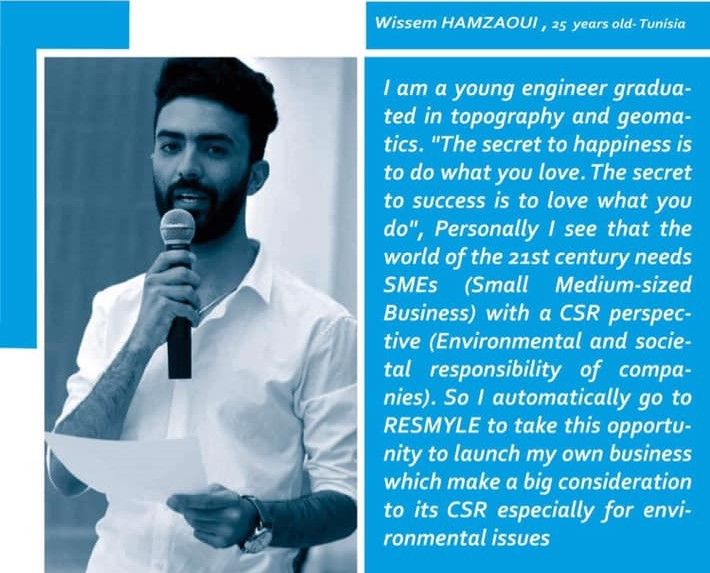
The multi-institutional and multi-stakeholder approach of the ENI CBC Mediterranean Sea Basin Programme is the perfect scenario to enhance the development of projects such as Resmyle, created to give wings to the heterogeneous and fragmented context of the Basin. For example, the dynamism of the civil society in the Southern Mediterranean – namely in Lebanon and Tunisia – and their capacity to innovate in the field of social economy, at the crossroads between the real economy and social policies – put them at the core of social economy actions, and this programme offers them the opportunity to raise their voice, share their concerns and vision.
In the long run, Resmyle is set to create 300 direct jobs for young people. Although the COVID-19 pandemic is having and will have an impact on the project, mostly delaying its implementation, the solidity of the workplan and the experienced consortium maintain intact the hope for the project to deliver as expected. In particular, the people-to-people cooperation format and collaboration approach between the key players in employment, training, youth integration and employment policies, will have an impact on beneficiaries. This collaboration is helping in creating an ecosystem favourable to private initiatives focused on local issues and the socio-professional integration of young people into the job market.
The relevance of this topic is now even more important after the Covid-19 crisis, as the aftermath of the pandemic will result in a major economic downturn and will have a large effect on the loss of jobs and employment opportunities mainly for disadvantaged groups. Accordingly, focusing on those individuals, and enhancing their skills and capacities is crucial, especially when it is done via a response to environmental challenges which remain of main concern throughout the region.
